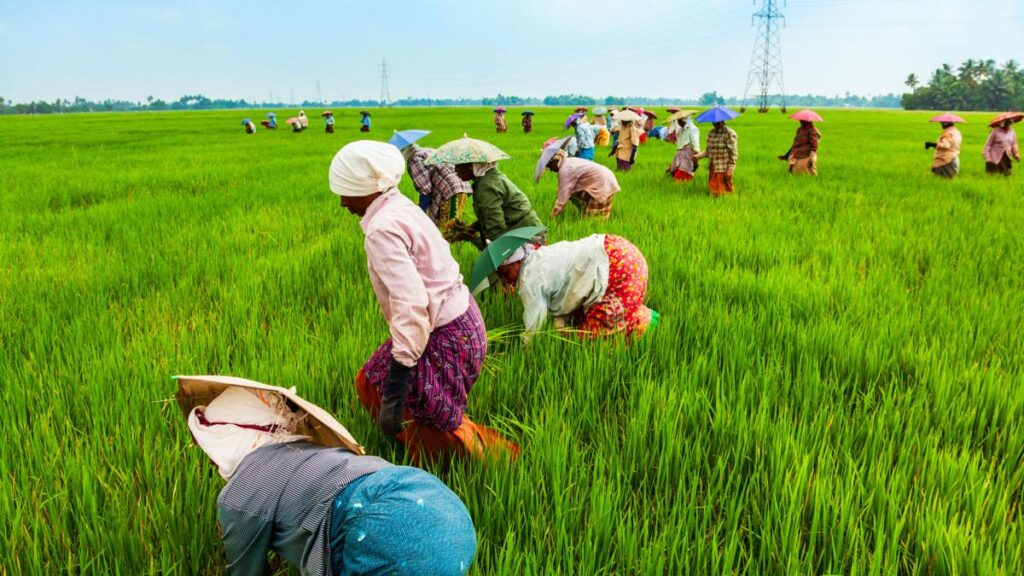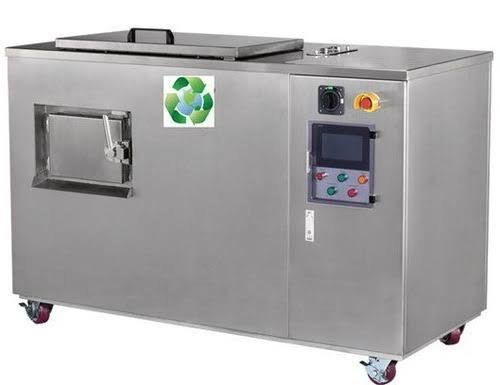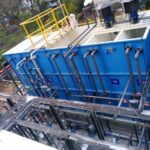Uses and Benefits of Organic Waste Composter
An organic waste composter, often simply referred to as a “composter,” is a device or system designed to facilitate the decomposition of organic materials, such as food scraps, yard waste, and other biodegradable materials, into nutrient-rich compost. Composting is a natural biological process in which microorganisms break down organic matter into a humus-like substance known as compost. The resulting compost is a valuable soil conditioner and fertilizer that can be used to improve soil quality and support plant growth.

Benefits and Application of Organic Waste Composter
Composting organic waste offers numerous benefits and applications across various sectors. Here are some of the key uses and advantages of organic waste composting:
- Soil Enrichment: Compost serves as an excellent soil conditioner, enriching soil with essential nutrients, such as nitrogen, phosphorus, and potassium. It improves soil structure, enhancing its ability to retain moisture and nutrients, ultimately leading to healthier and more productive plants.
- Agriculture and Gardening: Compost is a valuable resource for farmers and gardeners. It can be mixed with soil to enhance its fertility, promote plant growth, and reduce the need for synthetic fertilizers, thus making agriculture more sustainable.
- Landscaping: Compost can be applied to lawns, parks, and public spaces to improve soil quality, promote grass growth, and enhance the overall appearance of landscapes. It helps in erosion control and creates healthier, more resilient green spaces.
- Horticulture: Compost is widely used in horticulture to cultivate trees, shrubs, and ornamental plants. Its nutrient-rich content encourages root development and improves the overall health and aesthetics of landscapes.
- Erosion Control: Compost can be applied to slopes and embankments to prevent soil erosion. Its ability to bind soil particles together and improve water retention makes it an effective erosion control measure.
- Stormwater Management: Compost can be used in stormwater management systems to improve water quality. It filters pollutants from runoff and reduces the risk of water pollution, particularly in urban areas.
- Urban Farming: Composting in urban settings can support community gardens and urban farming initiatives. It enables city dwellers to grow their food and reduce their ecological footprint.
- Waste Reduction: Composting diverts organic waste from landfills, reducing the volume of waste that requires disposal. This not only conserves landfill space but also decreases the generation of harmful methane gas from decomposing organic matter in landfills.
- Green Energy: In some cases, composting facilities capture methane gas produced during the decomposition process and convert it into renewable energy, such as biogas or electricity.
- Sustainable Practices: Organic waste composting aligns with sustainable and environmentally responsible practices. It reduces greenhouse gas emissions, conserves resources, and promotes circular economy principles.
- Education and Awareness: Composting initiatives can be valuable educational tools. They raise awareness about the importance of waste reduction, sustainable agriculture, and environmental stewardship.
- Community Building: Composting programs can foster a sense of community by encouraging collaboration among residents, schools, and local organizations in waste reduction and sustainability efforts.
- Compost Sales: In some cases, surplus compost can be sold or distributed to generate revenue or support community projects.
How Organic Waste Composters Work
Organic waste composters facilitate the decomposition of organic matter through a carefully controlled aerobic (with oxygen) process. Here’s a simplified overview of how they work:
- Collection: Organic waste, including kitchen scraps, garden trimmings, and even some paper products, is collected and placed in the composter.
- Balance: Achieving the right balance of organic materials is crucial. A good compost pile should include a mix of “greens” (nitrogen-rich materials like food scraps) and “browns” (carbon-rich materials like leaves or cardboard). Proper aeration and moisture levels are also essential.
- Decomposition: Microorganisms such as bacteria, fungi, and other decomposers break down the organic matter. As they work, they generate heat, and the internal temperature of the compost pile rises.
- Turning and Maintenance: Regularly turning the compost pile helps aerate it, ensuring there’s enough oxygen for the microorganisms. Adequate moisture levels are maintained to facilitate decomposition.
- Maturation: Compost is ready when it reaches a stable, earthy-smelling, crumbly consistency. This process can take several months to a year, depending on factors like temperature and the mix of materials.
Conclusion
Organic waste composters are eco-friendly marvels that turn what was once considered waste into a valuable resource. By harnessing the power of nature’s recycling system, composters contribute to waste reduction, healthier soils, and a greener planet. They enable individuals, communities, and businesses to take meaningful steps toward sustainability while simultaneously improving soil health and reducing the carbon footprint. Organic waste composters are not just machines; they are catalysts for transformation, showing us the incredible potential of turning trash into treasure. Embracing composting is not only a responsible choice but also a vital step in our journey toward a more sustainable and harmonious world.
Top Manufacturer and Supplier of Organic Waste Composter in India
If you are seeking a leading manufacturer and supplier of Organic Waste Composter Machine in India, your search ends with Green Aqua Technology. As a prominent and trusted name in the industry, Green Aqua Technology proudly stands as a leading manufacturer and supplier of organic waste composters across India.
For further information, please contact us!
Factory Add :- F-45, B.S. Road Industrial Area, Ghaziabad, UP-201001
Office Add : C-18B, SF 05, Astoria Boulevard, RDC, Rajnagar, Ghaziabad UP 201002


